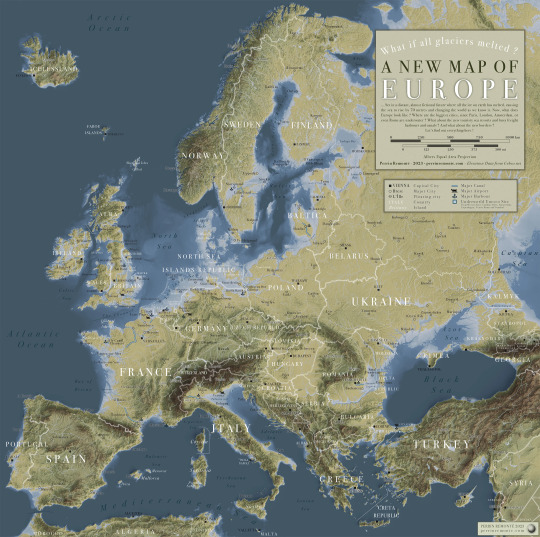#sea level
Explore tagged Tumblr posts
Text



Forgive me father, for i have sinned.. 𓆙
#ts4 edit#s4 edit#sims 4 edit#the sims 4 edit#the sims 4#ts4 render#sims 4 render#simblr#my edit#my renders#sashima#sea level#s
360 notes
·
View notes
Text

Forbidden love exists below sea level for Rom-nemo and Julie-cat(fish)
#art#doodle#drawing#ratatheart#rat at heart#animal art#fish art#fish#forbidden love#romeo#nemo#juliet#juli-cat-fish#cat fish#sea level
25 notes
·
View notes
Text
“Climate change isn’t real”- my city is sinking.
“Sea level rise won’t effect anyone” - our roads are flooding
“It won’t happen that fast” - over night 2 houses were lost
“It only affects people dumb enough to buy in sand dunes at the beach” - a nursing home is going to evacuate
“It isn’t real and even if it was it wouldn’t matter!” -shut up.
My city is flooding.
#climate#climate crisis#climate change#climate action#climate catastrophe#sea level rise#sea level#hellsite#tumblr#hellsite (derogatory)#please#environmental#enviromental#environmentalism
37 notes
·
View notes
Text

this summer was the third time i've visited Afangar (1991), a sculptural installation by Richard Serra of nine pairs of basalt columns on Viðey Island near Reyjavik. The first time was in 1995 in the winter, and I had to find a boatman to take me across. Now the harbor is a giant cruise ship terminal.
7 notes
·
View notes
Text


Ain’t Wasting Time: Jaimoe Turns 80
The first guy Duane Allman asked to join the group that would become the Allman Brothers Band is the last surviving original Allman Brother.
And that guy - who goes by the mononym Jaimoe - turns 80 today.
Born John Lee Johnson on July 8, 1944, and previously known as Jai Johanny Johanson, Jaimoe played on every ABB album save for 1981’s Brothers of the Road, and every tour, but the one supporting that LP.
After the Brothers’ first breakup, he formed Sea Level with fellow Brothers Chuck Leavell and Lamar Williams and after the Brothers final breakup, he headed Jaimoe’s Jasssz Band.
He’s mostly retired these days. But since the death of fellow original Dickey Betts earlier this year, Jaimoe has taken to playing occasionally with ABB tribute act Friends of the Brothers.
The road doesn’t go on forever. But long may the last enlightened rogue run.
7/8/24
#jaimoe#the allman brothers band#duane allman#gregg allman#dickey betts#berry oakley#butch trucks#sea level#chuck leavell#lamar williams#friends of the brothers#jaimoe’s jasssz band
5 notes
·
View notes
Text

A New Map of Europe: What if all Glaciers on Earth Melted?
21 notes
·
View notes
Text

Aquaduct Veluwemeer - Harderwijk

Vinkenveen / Vinkenveense Plassen

Giethoorn

Kinderdijk

Amsterdam Canals

Zaanse Schans

Naarden
Under Sea Level Living in The Netherlands
Walking & Drone tour ::
youtube
#travel#youtube#wanderlust#wonderjourneys#tourism#touristdestination#drone#dji#amsterdam#giethoorn#kinderdijk#unesco#unesco world heritage#windmills#keukenhof#zaanse schans#naarden#water#sea level#water management#dutch#under sea level#aquaduct#veluwemeer#veluwe#Youtube#the netherlands#netherlands#niederlande#paysbas
7 notes
·
View notes
Text
Last left living
I’ve got racks and bands racks and bands Livestrong bracelets outlive the land After the nukes land Whose hand shadowed the burgundy button Land sliding to inhuman climes Life cannot sustain, lung-raping acid rains It’s only cockroaches and plastic bands from Athenry to Atlanta Unmoving city full of noises, pie full of phantoms When do we mark it as over? They market ozone’s end as…
#alchemisland#apocalypse#art#climate change#creative writing#dystopia#endtimes#extinction#imagination#livestrong#neuralchemy#OC#original poem#original poetry#plastics#poem#poet#poet&039;s corner#poetblr#poetry#poetry community#poetryblr#sci fi#science fiction#sea level#writeblr#writer
2 notes
·
View notes
Text

sea level season one - COMING SOON....
#ts4 edit#s4 edit#sims 4 edit#the sims 4 edit#the sims 4#ts4 render#sims 4 render#simblr#my sims#my ocs#sea level#sea level season one#s
270 notes
·
View notes
Text

#earth day#earth day 2025#there is no planet b#sea level#sea levels#rising sea levels#rising sea level#oceans#climate change#global warming#earth#global warming is real#climate change is real#planet earth#save the earth#carbon emissions#greenhouse gas#greenhouse gas emission#greenhouse gas emissions#stop climate change#stop global warming#end climate change#end global warming#heated oceans#environmental activism#environmental awareness
0 notes
Text

The Brothers Return
- Collection of former Allmans to play Madison Square Garden April 15-16
Jaimoe, the last of the original Allman Brothers, will anchor a band of fellow former Brothers - and friends - for two concerts at Madison Square Garden.
Last seen March 10, 2020, at MSG as the COVID-19 pandemic bore down, the Brothers include former Allmans Warren Haynes and Derek Trucks on guitars; Oteil Burbridge on bass; Marc Quiñones on percussion; and special guest Chuck Leavell on keys playing alongside the mononym drummer.
This latest semi-reunion was inspired by 2024’s Soulshine benefit, also at MSG, when Haynes and Trucks teamed for a version of the Allman Brothers Band’s “Whipping Post,” which Sound Bites reviews here.
Drummers Joe Russo and Isaac Eady (Tedeschi Trucks Band) and keyboardist Reese Wynans (Double Trouble) round out the lineup.
2/7/25
#the allman brothers band#the brothers#jaimoe#warren haynes#gov’t mule#derek trucks#tedeschi trucks band#oteil burbridge#dead & company#chuck leavell#sea level#marc quiñones#reese wynans#stevie ray vaughan and double trouble#joe russo#isaac eady
1 note
·
View note
Text
Urgent Sea Levels Could Soar
0 notes
Text
171 feet / 52m
Speaking of mountains, I know most people live around sea level, but still, I'm curious
14K notes
·
View notes
Text
Urgent Sea Levels Could Soar
0 notes
Link
El análisis concluyó que trece de los puertos con mayor tráfico de superpetroleros se verán seriamente afectados con tan solo un metro de aumento del nivel del mar. Los investigadores señalaron que dos puertos de baja altitud en Arabia Saudita, Ras Tanura y Yanbu, son particularmente vulnerables. Ambos son operados por Aramco, la petrolera estatal saudí, y el 98% de las exportaciones de petróleo del país salen a través de estos puertos.
El aumento del nivel del mar es el impacto más profundo a largo plazo de la crisis climática, que ha rediseñado el mapa del mundo y afectado a muchas ciudades importantes, desde Nueva York hasta Shanghái. Pero Pearson dijo que los intereses a corto plazo de los gobiernos y las empresas hicieron que se lo pasara por alto. “La información básica [de las evaluaciones científicas del aumento del nivel del mar] no parece haber llegado a la conciencia de los gobiernos”, dijo.
0 notes